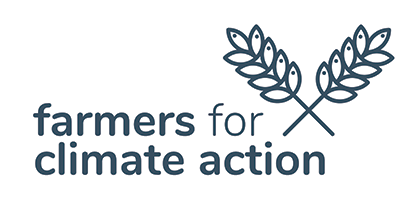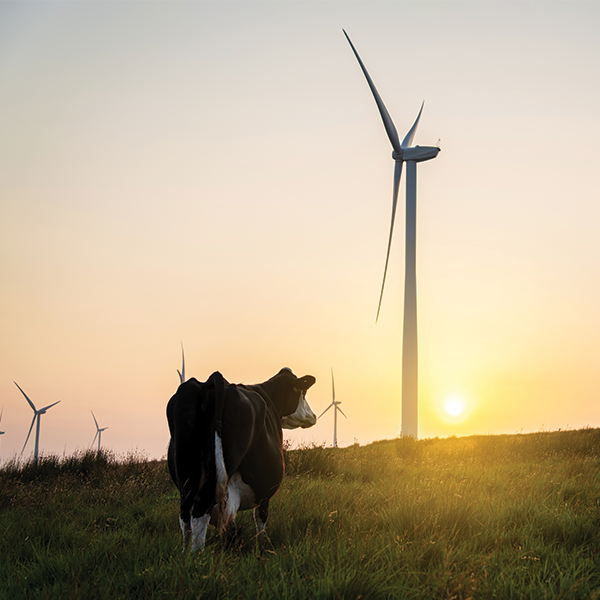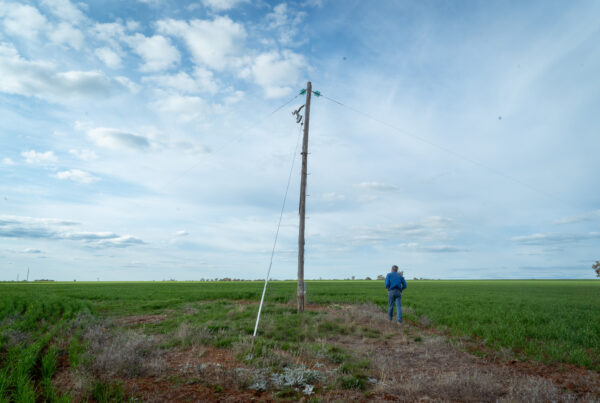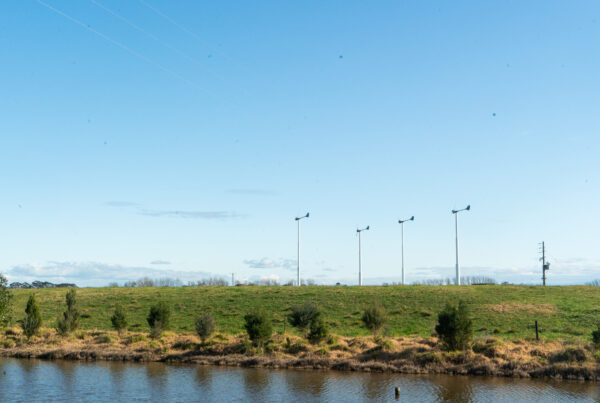Submitted – submission reference number: sbm24abac9398fd9956003a4
3 February 2023
Submission on the implementation of the National Reconstruction Fund (NRF)
Farmers for Climate Action thanks the National Reconstruction Fund Taskforce for the opportunity to provide input and feedback on the NRF’s implementation.
In this submission we have outlined a number of Farmers for Climate Action’s priorities and opportunities for investment to support Australian agriculture and in particular to support emissions reduction.
We believe these opportunities should be considered given their potential to help to create secure, well-paid jobs; secure Australia’s future prosperity; and drive sustainable economic growth, as outlined in the NRF’s mandate.
About us
Farmers for Climate Action is a movement of farmers, agricultural leaders and rural Australians working to influence Australia to adopt strong climate policies by growing the number of farmers, farming communities and elected representatives championing ambitious action. We represent 7,500 farmers across Australia, and our supporter base includes over 35,000 Australians committed to climate action for agriculture.
Australian farmers have shown that agriculture is ready and able to lead in driving sustainability and low emissions economic activity. Agriculture remains a key pillar of Australia’s economy (it is a $60B-plus per year industry), if we act quickly, there are huge economic opportunities for farmers and regional Australians in a low carbon economy. Let’s not miss the opportunity to create secure, resilient jobs and livelihoods for farmers and regional Australians.
At Farmers for Climate Action we engage the farmers in our network to guide our policy work. In a recent survey of our farmer members, we found that overwhelmingly farmers would make climate-smart changes on their farm if they were supported to do so. Currently, there is a lack of readily available programs that are trusted, credible and practical.
At the same time, Australia’s public and private sectors are making much-needed investments as we shift from an energy system powered by coal, oil and gas to one powered by renewables and storage. These critical investments will power more industries and communities, creating hundreds of thousands of jobs in rural and regional areas as Australia significantly reduces emissions over coming decades.
Opportunities for NRF focus and investment
Australian farmers and the agriculture sector present many opportunities for the NRF within its priority areas of:
- renewables and low emissions technologies
- transport
- value-add in the agriculture sector
Nationally, the imperative to rapidly deploy renewables is clear. This is key to achieving the deep emissions reductions we need to limit climate change impacts, protecting the future of farms and food security. It is crucial we capitalise on the huge opportunities at farm and regional level. We believe that Government initiatives such as the National Reconstruction Fund and the Powering the Regions Fund have the potential to help fill that gap.
Farmers for Climate Action developed two reports in 2022, Farm Powered focused on renewable energy opportunities for farmers and regions, and Fork in the Road focused on climate-related impacts on supply chains.
Both reports demonstrate in different ways the extent of climate impacts on Australia’s agriculture sector while also providing solutions that will support farmers to thrive. We would point the NRF Taskforce to these as detailed resources with background and recommendations in the priority areas of renewables and low emissions tech, as well as transport and supply chains.
Farmers for Climate Action is also currently developing a suite of recommendations that would inform a national climate change and agriculture strategy. Coupled with the two reports mentioned above, together these three bodies of work inform our recommendations below.
Here we highlight some of our key priorities:
- Provide investment and mechanisms to support mitigation and adaptation solutions for specific commodities as well as the sector as a whole, including :
- Increased funding specifically for research, development, commercialisation and knowledge sharing of:
- Emissions reduction technologies and land management practices, particularly for difficult to abate gases such as nitrous oxide and methane;
- Adaptation strategies to support farmers to future proof production and maintain commercial viability.
- Support for farmers to invest in emissions reduction technologies and initiatives that are cost prohibitive, such as through an instant tax asset write off.
- Increased funding specifically for research, development, commercialisation and knowledge sharing of:
- Commit funding to address the high capital costs of on-farm renewables and storage, and increase knowledge sharing by:
- Introducing renewable energy incentives for farmers, supported by a national energy audit program, to increase rapid uptake on farms and reduce input costs.
- Subsidising on-farm batteries making them financially viable by reducing payback periods.
- Establishing an agricultural program within the Australian Renewable Energy Agency (ARENA) to fund demonstration and knowledge sharing projects for renewable energy and battery solutions on-farm.
- Investment/funding to pilot small-scale renewable powered hubs that share infrastructure and supply a local region with products and services such as green ammonia to urea processing.
- Investment/funding into agrivoltaics research and knowledge sharing program to boost farm profitability and show communities that agriculture and energy production can co-exist.
- Investment in regional road and infrastructure reconstruction (e.g. to local government) in regions impacted by flooding and other natural disasters to ensure the rebuild is to a standard that is more resilient to future disaster events.
Opportunities and barriers for farm businesses
We urge the NRF Taskforce to consider the practical position and needs of farmers in the design and implementation of its loans and financing models. Many farmers are running small to medium size businesses, operating on low margins.
Ensuring the NRF’s programs don’t have an overly burdensome or bureaucratic approach is important – while we recognise that rigour and integrity is also of course paramount, to make sure there’s trust and ensure beneficial outcomes.
Coordination and collaboration with existing bodies (e.g. farmer representative organisations and industry bodies) would be useful to assist in optimising program rollout for farmers and agricultural industry players.
Conclusion
We appreciate the opportunity to outline some of our priorities and thank the NRF Taskforce for consideration of our input.
If we act quickly on priorities including renewable energy and low-emissions technologies, there are huge economic opportunities for farmers and regional Australians. Let’s not miss the opportunity to invest in secure, resilient jobs and livelihoods for farmers and regional Australians.
Contact:
Cam Klose, Strategy Director
Farmers for Climate Action







